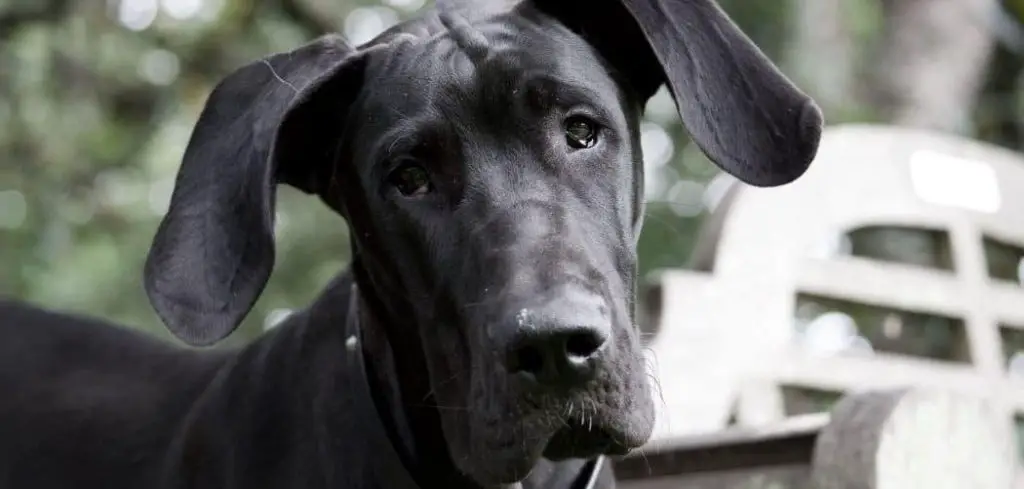Seeing your old dog always hungry can be puzzling and even concerning. While a healthy appetite is generally good, excessive or sudden increases in hunger may point to underlying health issues that need attention.
We outline the common causes of constant hunger in old dogs, what you can do at home, and when to seek veterinary help.
Old Dog Always Hungry — Why It Happens
A sudden increase in hunger in older dogs is often linked to underlying medical or metabolic changes. Conditions like diabetes, Cushing’s disease, thyroid imbalances, malabsorption issues, or side effects from medications can all play a role.
In some cases, behavioral or cognitive changes in aging dogs may also drive food-seeking behaviors.
While some causes are manageable, others require close veterinary supervision to prevent complications.

Old Dog Always Hungry: Common Causes
Diabetes Mellitus
Diabetes is one of the most common reasons for an old dog always hungry.
In diabetic dogs, the body cannot properly use glucose for energy. Despite eating, their cells remain starved, which drives constant hunger. Owners may also notice excessive thirst, frequent urination, and weight loss.
If left untreated, diabetes can cause severe complications like ketoacidosis, cataracts, and organ failure. This makes increased hunger an important red flag in senior dogs.
Read more: Old Dog Panting a Lot (Here’s why)
Cushing’s Disease
Cushing’s disease (hyperadrenocorticism) is another common cause of old dogs being always hungry.
This condition occurs when the adrenal glands produce too much cortisol. Cortisol affects appetite, metabolism, and energy regulation. Dogs with Cushing’s often eat excessively, drink more water, and may show a pot-bellied appearance, hair loss, or muscle weakness.
Because it is progressive, Cushing’s disease requires careful management. Left untreated, it can shorten lifespan and severely affect quality of life.
Hyperthyroidism and Metabolic Disorders
Though less common in dogs than in cats, thyroid imbalances can still occur and may explain why an old dog is always hungry.
An overactive thyroid increases metabolism, making dogs burn calories faster and crave more food. Owners may notice weight loss despite eating large amounts, restlessness, and a scruffy coat.
Metabolic disorders in general can disrupt how nutrients are processed, leaving dogs feeling unsatisfied after meals. Identifying and managing these conditions early can prevent further complications.
Malabsorption and Digestive Disorders
If your old dog eats constantly but still loses weight or has frequent diarrhea, malabsorption issues may be to blame.
Conditions such as exocrine pancreatic insufficiency (EPI), inflammatory bowel disease (IBD), or intestinal parasites prevent nutrients from being properly absorbed. Dogs in these cases may act ravenous, trying to compensate for the lost nutrition.
Digestive disorders often require long-term treatment, but with proper care, many dogs can return to a normal eating pattern.
Medication Side Effects
Certain medications can make an old dog always hungry.
Steroids such as prednisone are well known for increasing appetite. While this side effect is not harmful on its own, it can cause overeating, begging, and weight gain.
If your dog is on long-term medication and their hunger seems extreme, it’s worth discussing alternatives or dosage adjustments with your vet.
Cognitive and Behavioral Changes
Not all excessive hunger is caused by physical illness. In senior dogs, canine cognitive dysfunction (similar to dementia in humans) can lead to changes in eating habits.
Some dogs may forget they’ve eaten and beg repeatedly. Others may seek food out of anxiety or boredom, especially if activity levels have decreased. While not dangerous in itself, this type of hunger can affect weight management and overall comfort.
What to Do If Your Old Dog Is Always Hungry
If your senior dog suddenly develops an increased appetite, it’s important to first consider possible medical causes. Schedule a veterinary checkup to rule out conditions like diabetes, Cushing’s disease, or thyroid problems.
At home, try feeding smaller, more frequent meals to keep your dog satisfied without overfeeding.
Choose high-quality, nutrient-dense foods that support senior health. If your vet approves, fiber-rich foods can help dogs feel fuller longer.
Keep track of any other changes, such as thirst, urination, weight loss, or lethargy, as these provide important clues. Avoid free-feeding, since constant access to food can make overeating worse.
Finally, provide mental stimulation and enrichment. Puzzle feeders, walks, or gentle play can reduce food-obsessed behaviors and support cognitive health.
When to Call or Visit Your Vet
You should call your vet if your old dog is always hungry and showing additional signs like sudden weight loss, excessive drinking, frequent urination, vomiting, or diarrhea.
If your dog is on medication and their hunger feels unmanageable, ask your vet whether the prescription could be adjusted.
Any time excessive hunger develops quickly, rather than gradually, it’s a signal something more serious could be happening. For senior dogs, it’s always safest to err on the side of caution and have them examined.
Read more: Old Dog Peeing Blood (What it could mean)
Key Takeaway
An old dog always hungry may seem like a harmless quirk, but it often points to underlying medical issues that deserve attention.
Whether the cause is diabetes, Cushing’s disease, digestive problems, or medication side effects, understanding the reason behind your dog’s hunger is the first step to helping them.
With proper veterinary guidance and supportive care at home, most dogs can continue to live comfortably and happily—even if they seem to have an endless appetite.
